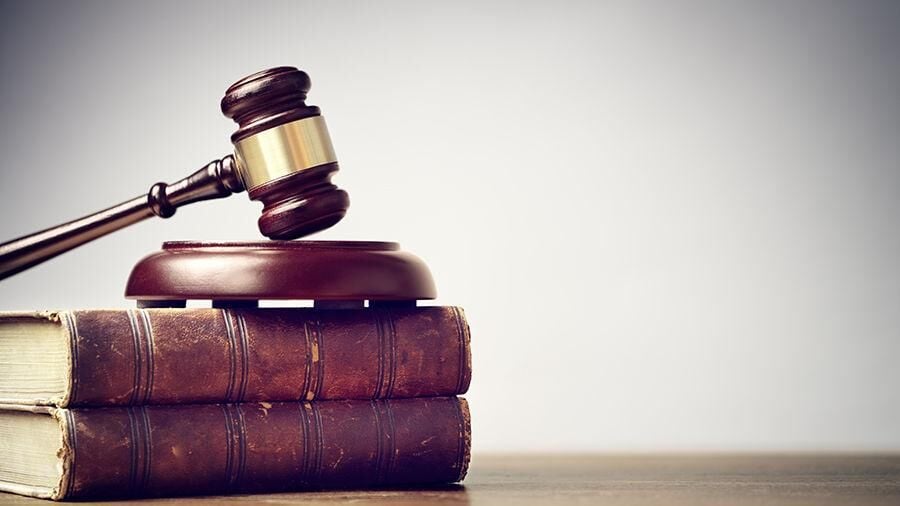PHOENIX — Abe Hamadeh is not entitled to a do-over of his trial in his bid to overturn his loss of the attorney general’s race, the state Court of Appeals ruled Tuesday.
In a split decision, the three-judge panel noted that Hamadeh’s own attorney admitted to a judge that the evidence presented at his trial was insufficient to actually get a ruling that he had outpolled Democrat Kris Mayes.
Appellate Judge David Gass, writing for the majority, acknowledged that Hamadeh later came back and claimed to have “newly discovered evidence’’ that should entitle him to a new trial. But Gass said that Hamadeh never really explained how any of this would have affected the final outcome to show that he lost to Mayes by 280 votes.
The appellate court also said that Mohave County Superior Court Judge Lee Jantzen did not err in rejecting various requests by Hamadeh for information from Maricopa County, including a list of people who cast provisional ballots but whose votes were not counted. Here, too, Gass said Hamadeh failed either to act promptly or to show that any of this was relevant.
And the court rebuffed claims that Jantzen acted improperly in limiting the amount of time he had to prepare his legal arguments for his trial.
Tuesday’s ruling drew a stinging reaction, with Hamadeh calling the ruling “a display of a neutered justice system that not only defies common sense, but defies the rule of law.’’
“The ruling illustrates that one of the most disgraceful elections in the history of our state will never face accountability or honor the true will of the people,’’ he said in a prepared statement.
He called the split decision “very confusing’’ and “ripe for Supreme Court review,’’ even though he is actively running to be the Republican nominee for the U.S. House in CD 8 to replace Rep. Debbie Lesko when she retires from Congress at the end of the year.
Much of Hamadeh’s bid is based on his contention that, given enough time and the documents he wanted, he could prove that he outpolled Mayes.
That includes examining provisional ballots. These are from people whose votes were not counted because there was no record of them having been registered to vote.
Hamadeh said the fact they were not listed as registered had to do with a change in procedures in what happens at the Motor Vehicle Division when someone updates his or her information. And he contends that many of these votes would have been for him.
Gass said there are three problems with that.
First, he said, those new procedures had been in place for more than two years before the 2022 elections. Gass said it is established law that if someone is challenging such changes they have to do that before an election, not afterwards.
Second, Gass said Hamadeh never answered the question of how counting the ballots would likely have an effect on the outcome.
And, finally, there’s are state election laws.
“Neither the superior court nor this court has the power to order those votes counted,’’ Gass wrote. “Arizona law simply does not authorize opening the envelopes and counting those ballots.’’
Hamadeh’s also complained that Maricopa County failed to produce an unredacted “cast vote record,’’ essentially a computerized representation of how voters voted, stripped of any individual identifying information. He argued the information could be analyzed by an expert to find problems with vote tallies.
But Gass said Hamadeh did not advance any legal basis for obtaining such a record. And he said Hamadeh waited until an emergency hearing the day before the trial to argue it was part of the ballot inspection to which he was entitled.
The appellate court was no more impressed by Hamadeh’s arguments that problems unearthed in a recount of ballots in Pinal County — evidence not available at the time of the trial — entitle him to take his case back to court.
It is true that the recount did add 392 votes for Hamadeh and 115 for Mayes. But it still left Mayes with the most votes statewide.
“And Hamadeh offered no evidence of any other county making the same error as Pinal County,’’ Gass noted. “Instead, Hamadeh speculates on what ‘may be’ rather than ‘what is’ and then seeks an opportunity to look for new evidence.’’
In his dissent, appellate Judge James Morse faulted Jantzen for not giving Hamadeh access to that cast vote record. And he said it wasn’t necessary for Hamadeh to prove that it would change the outcome.
“The prejudice shown is not necessarily whether additional production would have led to a different result but whether Hamadeh was afforded an opportunity to conduct a meaningful inspection of the requested ballots and properly prepare for trial,’’ Morse said. And he said this is of critical importance in election cases where challengers have just a narrow window to make their case.
“Denying access to the CVR deprived Hamadeh of an opportunity for a meaningful way in which to conduct the ballot inspection in the condensed timeline allotted for election contests,’’ Morse wrote.





